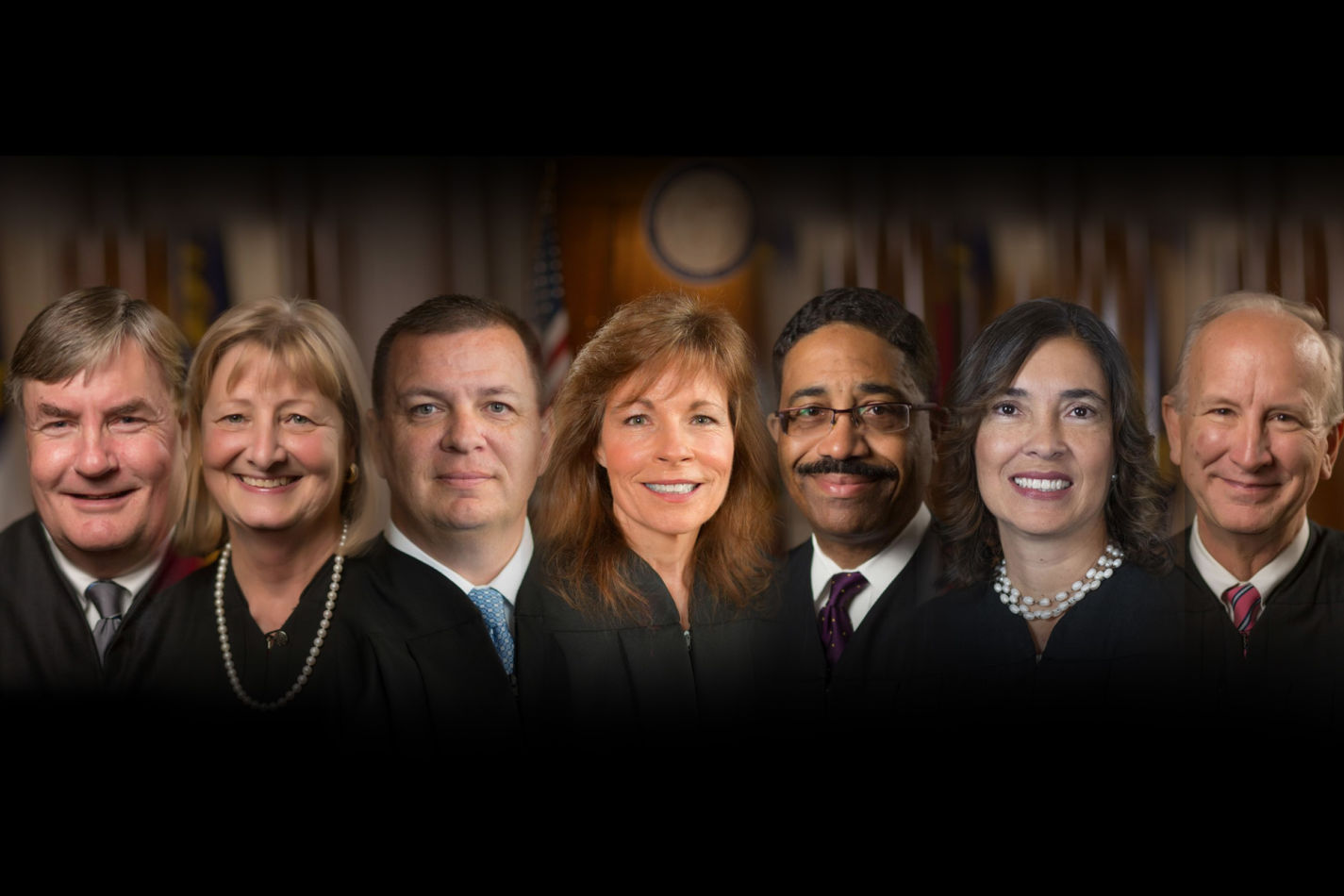- N.C. Supreme Court Justices Phil Berger Jr. and Anita Earls have turned down requests that they recuse themselves from the Leandro education funding case.
- The court will hear oral arguments Aug. 31. The case's current dispute involves a court order of $785 million in additional state education spending.
All seven N.C. Supreme Court justices will take part in this month’s oral arguments in the Leandro school funding case. Justices Phil Berger Jr. and Anita Earls both announced Friday that they are rejecting requests that they recuse themselves from the case.
Plaintiffs had targeted Berger because his father serves as the top officer in the N.C. Senate. In that role, Sen. Phil Berger is intervening in the case.
“Pursuant to an administrative order entered by this Court on December 23, 2021, and having reviewed and considered precedent established by this Court, N.C.G.S. § 1-72.2, N.C.G.S. § 120-32.6, the North Carolina Code of Judicial Conduct, and the arguments of the parties, plaintiffs’ motion and suggestion of recusal is denied,” Berger Jr. wrote Friday in a one-sentence order.
The Dec. 23, 2021, order confirmed that state Supreme Court justices can decide on their own whether to take part in deliberations and decisions about particular cases. That order followed months of speculation that Berger and Justice Tamara Barringer, both Republicans, might be forcibly removed from a different case by a vote of their colleagues. Carolina Journal reported on the controversy at ExtremeInjustice.com. Season One of the “Extreme Injustice” podcast dealt with the controversy surrounding the potential forced removal of justices.

In the Leandro case, Earls released eight pages of commentary Friday. She explained her decision to deny a recusal request from legislative leaders. They had cited concerns about Earls’ previous work representing intervening plaintiffs in the case. Lawmakers also referenced Earls’ filing of a friend-of-the-court, or amicus, brief supporting plaintiffs.
“I conclude that grounds do not exist for me to disqualify myself from hearing and deciding the issues presented,” Earls wrote.
“[T]he matter in which I did appear seventeen years ago as one of several attorneys representing intervenors was severed from the underlying case and is not at issue in this appeal,” she wrote.
“I filed an amicus brief on behalf of the civil rights organization I was leading a decade ago,” Earls added. “Just as a jurist’s prior career as a prosecutor is not understood to undermine their capacity to preside impartially in cases involving the State or defendants prosecuted by their office, it would be a disservice to the judiciary and to the people of North Carolina to conclude that my prior career as a civil rights attorney precludes me from acting impartially in cases involving civil rights matters.”
The Leandro case, officially titled Hoke County Board of Education v. State, dates back to 1994. The state Supreme Court already has produced major opinions in the case in 1997 and 2004.
In the current dispute, justices will decide whether a trial judge can order the state to spend an additional $785 million on education-related items. Those items are linked to a court-sanctioned plan, dubbed the comprehensive remedial plan. That plan stems from a multiyear, multibillion-dollar proposal developed for the trial court by San Francisco-based consultant WestEd.
In addition to the spending, justices will decide whether a trial judge can bypass the General Assembly and order other state government officials to move the $785 million out of the state treasury. Legislative leaders and the state controller’s office object to the forced money transfer.
Oral arguments are scheduled Aug. 31. Berger, Earls, and the rest of the justices will render a decision at a later date “to be chosen in the Court’s discretion,” according to a scheduling order.